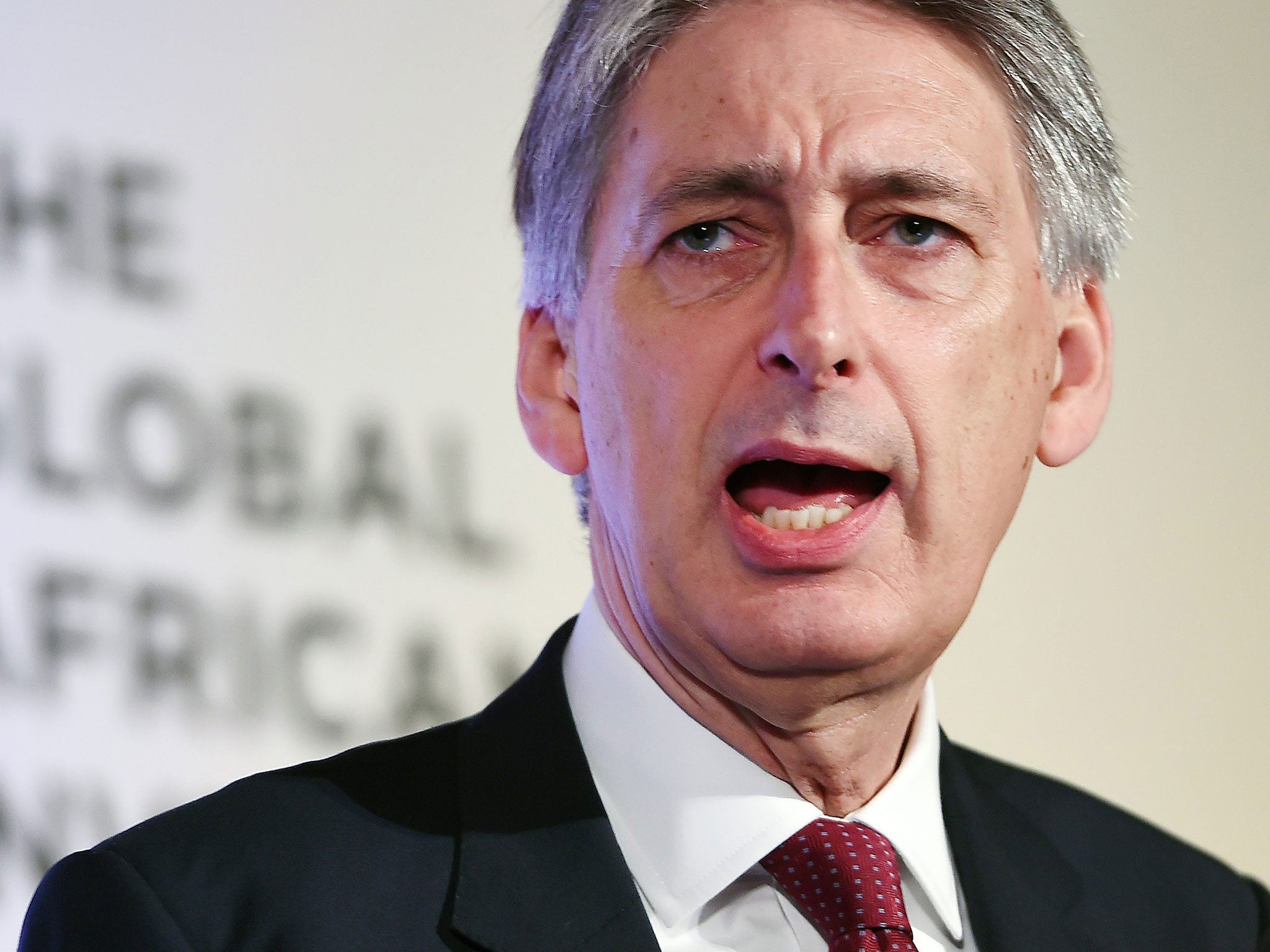Philip Hammond's 'quiet' approach to human rights isn't working
There is a glaring gap between the Foreign Secretary's words and the UK’s role in some of the worst abuses

Your support helps us to tell the story
From reproductive rights to climate change to Big Tech, The Independent is on the ground when the story is developing. Whether it's investigating the financials of Elon Musk's pro-Trump PAC or producing our latest documentary, 'The A Word', which shines a light on the American women fighting for reproductive rights, we know how important it is to parse out the facts from the messaging.
At such a critical moment in US history, we need reporters on the ground. Your donation allows us to keep sending journalists to speak to both sides of the story.
The Independent is trusted by Americans across the entire political spectrum. And unlike many other quality news outlets, we choose not to lock Americans out of our reporting and analysis with paywalls. We believe quality journalism should be available to everyone, paid for by those who can afford it.
Your support makes all the difference.Writing in The Independent, the Foreign Secretary Philip Hammond praised “our own, British way” of promoting human rights abroad – a strategy in which relationships with the likes of Saudi Arabia are “nurture[d]” by “quiet and continued engagement behind the scenes”. “We were leaders on human rights in 1215, as the Magna Carta was sealed,” he says, “and we remain leaders now.”
Mr Hammond has a curious view of leadership. Under his tenure as Foreign Secretary, the FCO has ditched the UK’s longstanding commitment to fight the death penalty overseas, at a time when execution rates have surged in Saudi Arabia, Egypt and Pakistan – countries we count among our closest allies.
Saudi Arabia, with whom the UK apparently traded votes in the last Human Rights Council elections, is expected to execute 55 political prisoners in the coming days. Egypt, whose President was warmly received by David Cameron last month, is trying an Irish teenager, Ibrahim Halawa, in farcical mass trial proceedings for attending a protest. He has been tortured and faces the death penalty.
Pakistan, one of the UK’s closest allies, has embarked on an unprecedented execution spree this year which has seen 300 people hanged – among them juveniles and the mentally ill. One disabled prisoner, Abdul Basit, currently faces being hanged from his wheelchair.
Mr Hammond describes his engagement with these countries as “quiet”. Ali, Ibrahim and Basit might argue that it is too quiet by half.
As the UK submits its bid for re-election to the UN Human Rights Council, there is a glaring gap between Philip Hammond’s words on human rights, and the UK’s role in some of the worst abuses. The Foreign Secretary would do well to acknowledge this contradiction, and take steps to mend it.
The author is the head of Reprieve’s death penalty team
Join our commenting forum
Join thought-provoking conversations, follow other Independent readers and see their replies
Comments